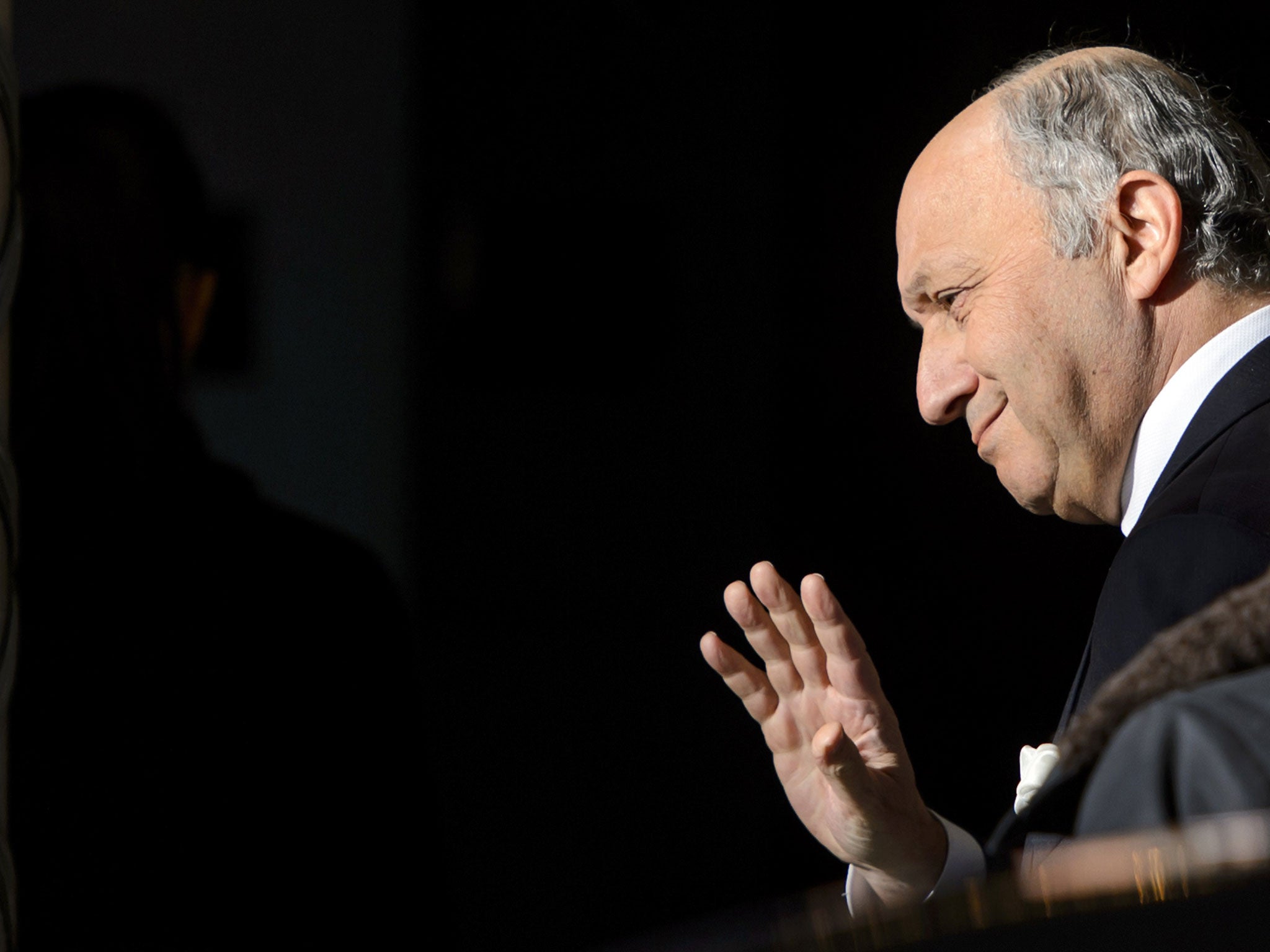Le Grand Satan? France under fire for tough line on Iran nuclear programme

Your support helps us to tell the story
From reproductive rights to climate change to Big Tech, The Independent is on the ground when the story is developing. Whether it's investigating the financials of Elon Musk's pro-Trump PAC or producing our latest documentary, 'The A Word', which shines a light on the American women fighting for reproductive rights, we know how important it is to parse out the facts from the messaging.
At such a critical moment in US history, we need reporters on the ground. Your donation allows us to keep sending journalists to speak to both sides of the story.
The Independent is trusted by Americans across the entire political spectrum. And unlike many other quality news outlets, we choose not to lock Americans out of our reporting and analysis with paywalls. We believe quality journalism should be available to everyone, paid for by those who can afford it.
Your support makes all the difference.France was at the centre of a diplomatic storm today after the French Foreign Minister was accused of sabotaging a deal with Iran which would end almost a decade-long standoff over the Iranian nuclear programme.
The most strident criticism came from Iran, where the hardline press condemned the “disgraceful behaviour” of French Foreign Minister Laurent Fabius at negotiations in Geneva. There were suggestions in Iranian media that trade ties should be severed with France and that the country should replace America as the “Great Satan”.
But Mr Fabius was also criticised by diplomats within the six powers – known as the P5+1 – involved in the three-day negotiations with the Iranian Foreign Minister, Javad Zarif, which wound up without agreement after midnight on Saturday. A new round of talks has been scheduled for 20 and 21 November
Foreign ministers from the UK, US, France, Russia and Germany, and a senior Chinese official, joined the negotiations on Saturday as an interim agreement appeared within reach. But hopes of a deal were dashed after Mr Fabius revealed that there remained differences, in particular over the freezing of the construction of a heavy water reactor at Arak.
It remained unclear today whether Mr Fabius had received clearance from his partners to speak publicly about the substance of the talks which had remained under tight wraps during the negotiations.
The Israeli Prime Minister, Benjamin Netanyahu, mobilised today to prevent what he called a “bad agreement” after issuing a forceful pre-emptive complaint following talks in Jerusalem on Friday with US Secretary of State John Kerry, when the talks appeared to be making rapid progress.
William Hague, the Foreign Secretary, struck an optimistic note, saying that “a deal is on the table, and it can be done”.
The deal under discussion would address Iran’s demand for the easing of sanctions which have targeted its oil and banking sectors over its defiance of UN resolutions. In return the Iranian authorities would seek to address Western concerns by constraining its nuclear programme. The P5+1 diplomats are working on an interim deal which would last for six months while a final agreement is worked out.
France wants work at Arak to be halted during the initial period, while others envisage that the plant to be part of the final pact.
The momentum towards a settlement received a crucial impetus following the election in June of Iran’s pro-reform President Hassan Rouhani, whose government has nevertheless continued to insist that Iran must retain the right to enrich uranium on its own soil. Iran says its nuclear programme is purely for civilian purposes.
Francois Heisbourg, a special adviser to the Paris-based Foundation for Strategic Research, told The Independent that “the French are right to say that the fate of Arak has to be settled now.” It has not been the focus of diplomatic efforts until now because it has not been built. However the reactor, which is due to come online in the second half of next year, is now the focus of concern because plutonium from Arak would provide Iran with an alternative pathway towards building a bomb.
“It makes sense to ask for a freeze on the Arak construction now, in case there is no second bite of the apple,” said Mark Fitzpatrick, director of the non-proliferation and disarmament department at the International Institute for Strategic Studies, by email.
Mr Kerry, accused of giving away too much to Iran by critics in Congress, today defended the Obama administration’s strategy. “We are not blind, and I don’t think we are stupid,” he told Meet the Press on NBC.
Michael Adler, an Iran expert with the US think tank the Woodrow Wilson Center, told The Independent that a delay in talks might threaten an eventual agreement. “Now the question is whether the matter can be settled quickly, or whether it will drag on, which is dangerous since hardliners on both sides could take steps which would sabotage an eventual agreement,” he said.
France has long taken a hard line regarding Iran. Mr Heisbourg rejected suggestions that the French government’s position stemmed from its lucrative business ties with Saudi Arabia, which has campaigned against Iran’s nuclear programme.
He argued that the Iranians could stop work at Arak “instantly”. “If they don’t want to, then it comes back to the question: what are they up to?”
Join our commenting forum
Join thought-provoking conversations, follow other Independent readers and see their replies
Comments